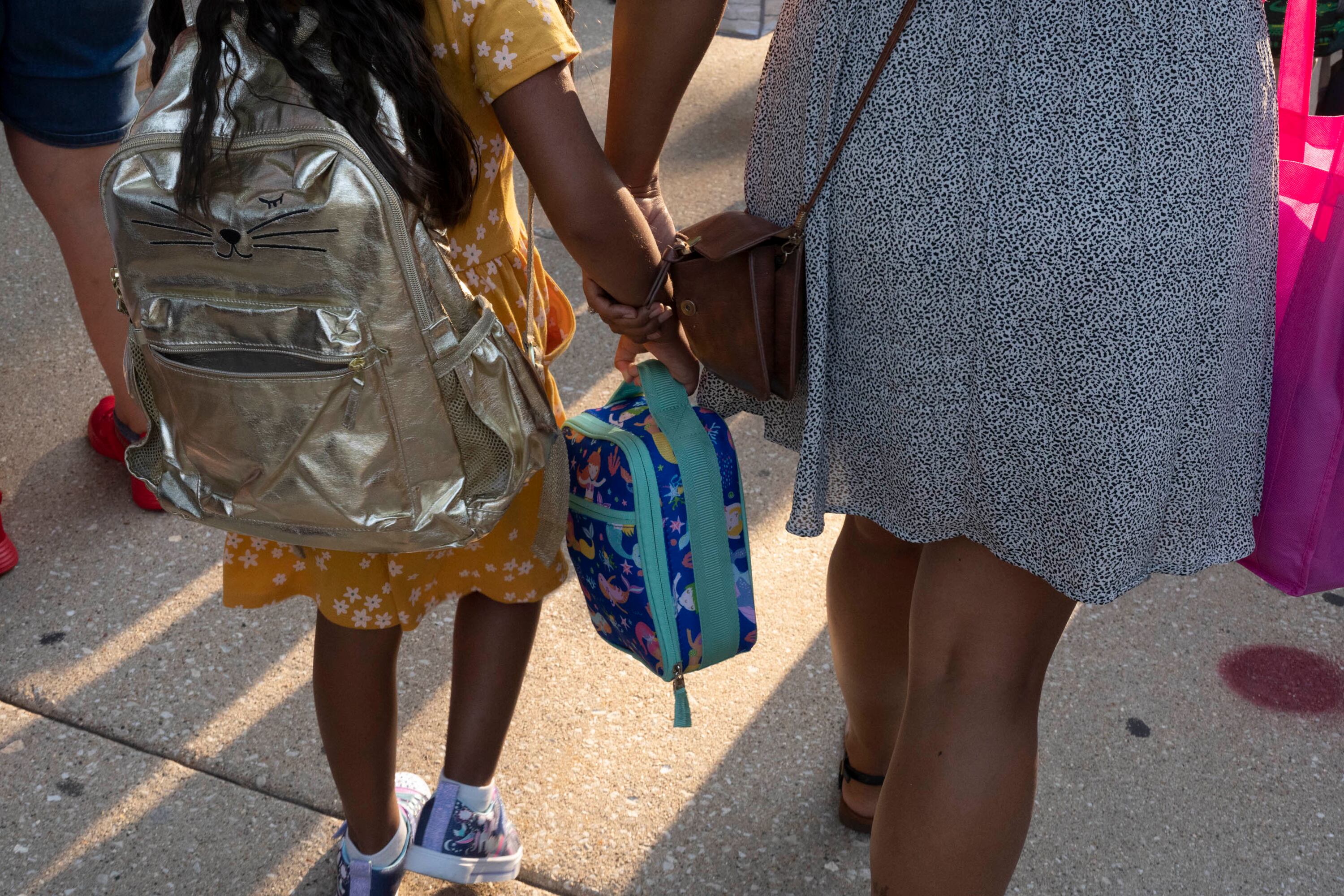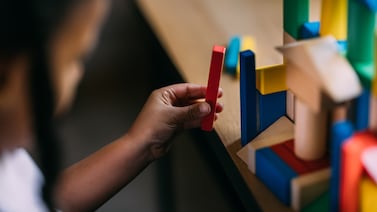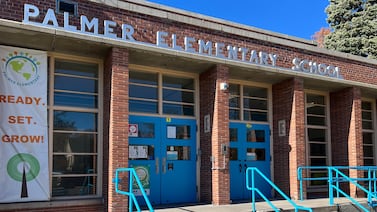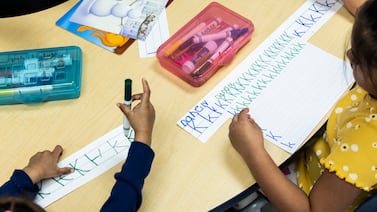KT McClure stood bundled up outside her Far North Side Chicago school in 20-degree weather Monday morning to call for reopening classrooms for in-person instruction.
But McClure, whose daughter Lucia Gonzalez is a second grader at New Field Elementary, also wants a clear metric for shutting school buildings when COVID cases spike — just as the Chicago Teachers Union has demanded.
“It shouldn’t feel like a whimsy,” she said.
McClure says parents like her don’t feel included in the increasingly heated debate between the district and the union over COVID protocols and reopening schools. It’s a perception that parents across the city echoed on Monday, the fourth day of canceled classes, as talks between the two sides continue.
Both Chicago Mayor Lori Lightfoot and the union have laid claims in recent days to safeguarding the interests of families. But some parents and students say neither the city nor the union have polled them, making it impossible to quantify where the majority of parents and students stand.
Nor has the city or the union offered a meaningful forum for parents and students to voice their opinions or brainstorm solutions. Letters to some aldermen have received canned responses, and the district, which polled families on school reopening last school year, has not tried more recently to collect citywide data on where parents stand amid the latest COVID surge.
Often, where parents stand is not a simple pro-district or pro-union proposition. McClure supports a return to in-person learning but other parents feel caught in the back-and-forth that has forced a standoff.
Some teachers — while locked out of their emails and direct communications to parents — were taking their case directly to families at the start of the week, standing outside schools to talk to families in the neighborhood; hosting small meetings with parents and students via Zoom; and posting letters to their school communities on social media.
At a virtual press conference hosted Monday by the nonprofit Kids First, parents serving on the group’s advisory council had sharply different takes on virtual learning and COVID safety. But they were in agreement on one thing: Many parents don’t feel that their perspectives and needs are reflected in the war of words between the mayor, district, and union officials.
Karonda Locust, whose children attend Cather Elementary and Uplift Community High School, believes virtual learning exacts a steep academic and mental health toll, especially in the city’s communities of color. She said the district has done a lot to put COVID safety measures in place, and she feels her children are safe at school. She said she appreciated that Uplift reopened to provide enrichment activities for students Friday, and Cather followed Monday.
In contrast, Tierra Pierson, a mom of three Chicago Public Schools students at DePriest Elementary and Clemente High School, said she kept her children home after the break because it did not feel safe amid the surge in cases. She said she was taken aback when she reported one of her children had COVID-like symptoms, and the schools encouraged her to send the other two, who are fully vaccinated, to campus.
But Locust and Pierson both said parents should have more of a voice in the standoff between the district and union.
“Our kids are used as pawns in a political battle over power and control,” Locust said. “These decisions being made are affecting our babies, not just CTU and CPS.”
Luz Maria Flores, the mom of a Seward Elementary student, said the district should provide N95 masks to all students and staff, and increase testing and outreach to promote vaccination. The union should acknowledge the hardship remote learning can be for some students and working parents.
“We need to unite as a big family,” she said in Spanish. “It’s on all of us to learn how to live in this new reality.”
At another community meeting hosted by Raise Your Hands Illinois, Brighton Park Neighborhood Council, and other community organizations on Monday, parents raised concerns about school safety while highlighting unmet demands for how the city should use federal funds. The district should engage parents and students on how those funds should be used to make schools better, they said.
Rousemary Vega, a parent and organizer with Raise Your Hand, said CPS families need to feel safe and supported during the pandemic but this wasn’t the case.
“The city should be doing more in response to omicron,” Vega said. “That’s why the federal government gave the city of Chicago over $2 billion. We are here to ask: Where is the money?”
“We want transparency. Where is the money?,” she said. “Where is the parent and student involvement in the decision-making for those funds?”
Since her mother has to go to work, Lucia Gonzalez, the second grader, was scheduled to spend the rest of her Monday at a “safe haven” site at a nearby church. She said previous days there involved educational games on a tablet, recess, and coloring with other stranded children.
“I feel like we should be able to go to school in person,” she said.
Mauricio Peña contributed reporting.




